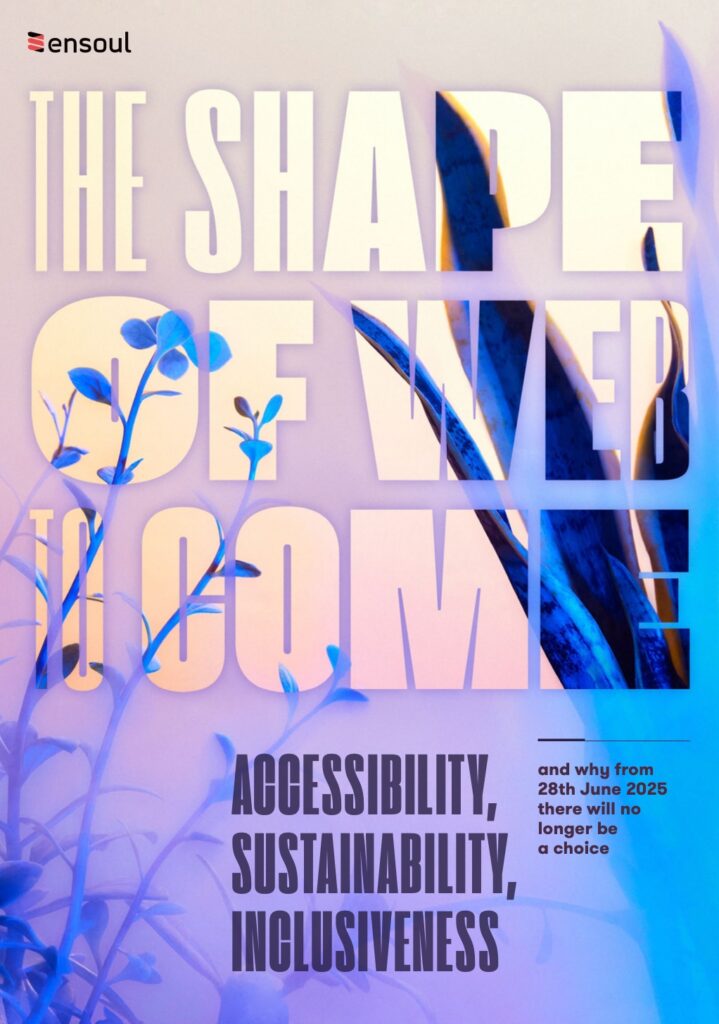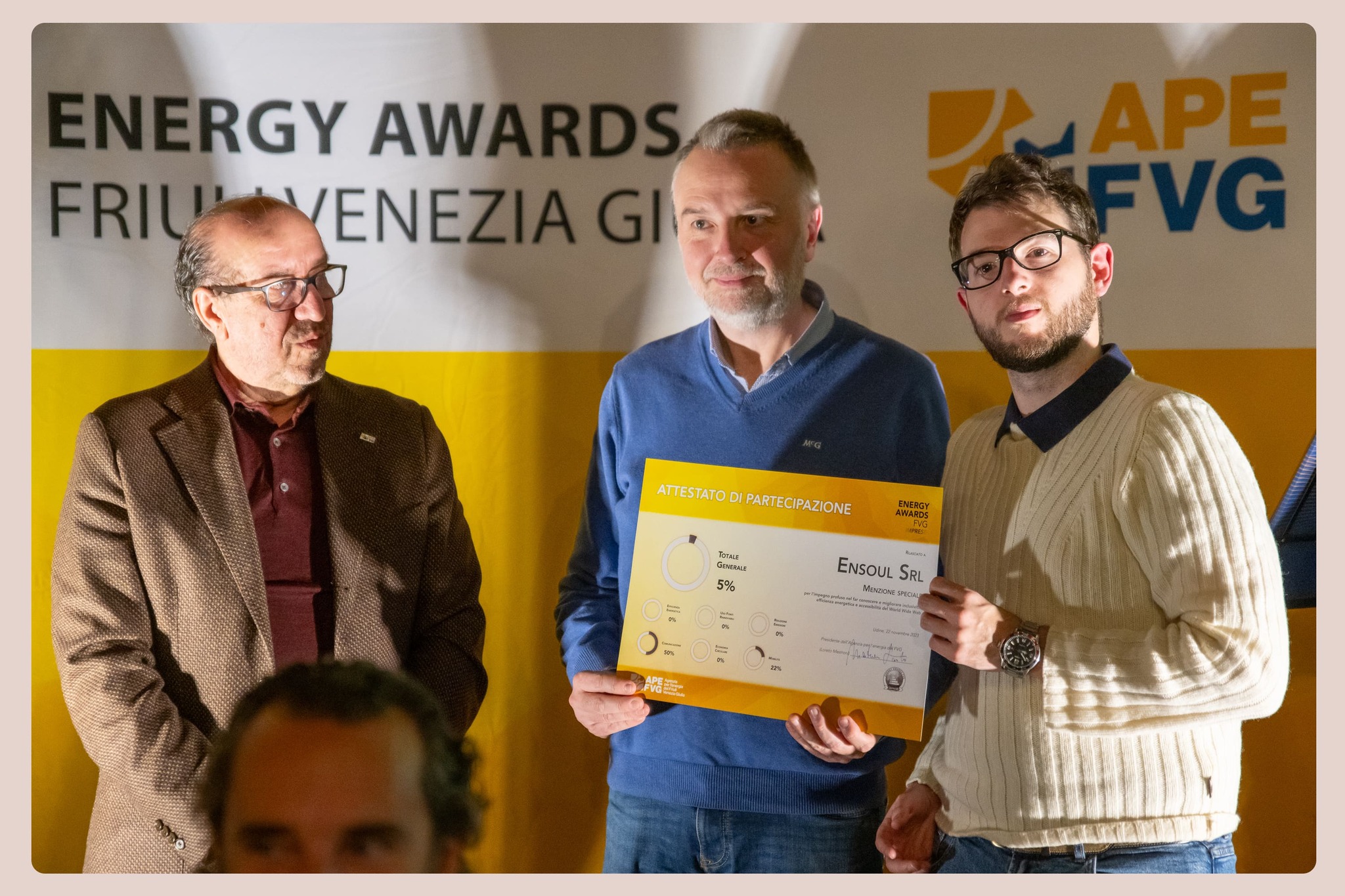Let’s be honest – we were bold.
When we received the invitation to participate in the FVG1 Energy Awards and reviewed the requirements to be awarded, it was clear that we didn’t fit the bill.
The prize rules talked about streamlining energetically your factory, refurbishing warehouses, using alternative energy sources, consuming less fuel, and so on. But we don’t do any of that, and the optimizations we can make to our supply chain are minimal.
However, the internet consumes a lot of energy. In fact, it’s the fourth largest consumer of energy in the world. And we can significantly reduce the energy consumption of our users.
For example, the BAM website alone (with 10,000 visitors per month) saves the equivalent of a 400km plane flight or 825km by car per year.
This gives a clearer idea of the impact of our work.
We looked at each other and said, “Should we try?” “Sure.”
The organization contacted us and invited us to a dinner at the Casa della Contadinanza in Udine Castle. To our surprise, we won a special mention. The organizers understood our spirit.
Building a Sustainable Web: Our Commitment to Accessibility, Sustainability, and Collaboration
We believe that the web has the potential to be a powerful force for good. However, the environmental impact of the web and its accessibility issues can often hinder its positive potential. We are committed to building a sustainable web, one that is not only accessible to all but also minimizes its environmental footprint.
Accessibility: No One Left Behind
We believe that everyone deserves equal access to the information and opportunities available online. This is why we are dedicated to developing and maintaining websites that are accessible to people with disabilities, regardless of their physical, sensory, or cognitive abilities. We achieve this by:
- Following WCAG guidelines: We adhere to the Web Content Accessibility Guidelines (WCAG) set by the World Wide Web Consortium (W3C). These guidelines outline specific criteria for making web content accessible to people with disabilities.
- Employing assistive technologies: We use tools and techniques that allow users with disabilities to access and interact with our websites, such as screen readers, keyboard navigation, and alternative text descriptions for images.
- Continuous testing and improvement: We regularly test and evaluate our websites for accessibility and strive to continuously improve our practices.
Sustainability: Minimizing our Environmental Impact
The web’s energy consumption and carbon footprint are significant concerns. We are committed to minimizing our environmental impact by:
- Utilizing energy-efficient servers: We choose to partner with data centers that utilize renewable energy sources and employ energy-efficient server technologies.
- Optimizing website performance: We optimize our websites for speed, reducing the amount of energy required to load them. This includes techniques like image compression, code optimization, and efficient content delivery networks.
- Promoting sustainable practices: We share information and resources about sustainable web practices with our clients and the broader digital community.
Collaboration: Building a Better Web Together
We recognize that building a sustainable and accessible web requires collective effort. We actively collaborate with organizations that share our values, such as Aspergeronline.net. This collaboration allows us to:
- Share knowledge and best practices: We work together to learn from each other’s experiences and develop innovative solutions for a more sustainable and accessible web.
- Raise awareness: We collaborate on initiatives to raise awareness about the importance of web accessibility and sustainability among organizations and individuals.
- Advocate for change: We work together to advocate for policies and practices that encourage the development of a more sustainable and inclusive web.

Sharing Our Knowledge: The Power of Education
Last Christmas, we gifted our customers with an e-book that delves deeper into the topic of sustainable web development. This e-book explores the environmental impact of the web, the importance of accessibility, and best practices for building sustainable and accessible websites. We plan to make this e-book publicly available this spring to further contribute to the discourse and empower others to build a better web.
By focusing on accessibility, sustainability, and collaboration, we strive to create a web that is not only accessible to all but also environmentally responsible. We believe that through dedication, collaboration, and education, we can all contribute to a more inclusive and sustainable digital future.
- FVG stands for Friuli Venezia Giulia, the reason we live in ↩︎

